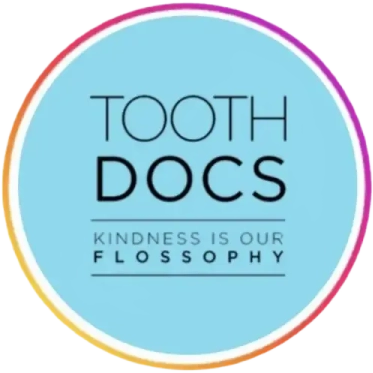Periodontal Services
Periodontal disease, also known as gum disease, is a common oral health issue that affects the gums and surrounding structures. It occurs when bacteria in plaque build up on the teeth and cause inflammation. This initial stage of gum disease is called gingivitis.
If left untreated, gingivitis can progress into periodontitis, a more severe form of the disease. Periodontitis involves not only inflammation but also damage to the tissues and bone supporting the teeth. Without proper treatment, it can lead to tooth loss.

Causes and Symptoms of Periodontal Disease
One of the main causes of periodontal disease is poor oral hygiene. Failing to brush and floss regularly allows plaque to accumulate on the teeth, providing a breeding ground for harmful bacteria. Other factors such as smoking, hormonal changes (such as during pregnancy or menopause), certain medications, genetics, and underlying health conditions like diabetes can also increase the risk of developing periodontal disease.
Early symptoms of periodontal disease include redness and swelling of the gums, bleeding while brushing or flossing, receding gums, persistent bad breath, loose or shifting teeth, and changes in bite alignment. If left untreated, these symptoms can progress to more severe stages where there may be pain or discomfort when chewing food.
It's important to seek periodontal services at an early stage to prevent further damage to your oral health. Periodontists are dental specialists who diagnose and treat gum diseases with specialized techniques such as scaling and root planing - a deep cleaning procedure that removes plaque buildup below the gumline. They may also recommend surgical interventions like gum surgery or pinhole technique for advanced cases.
In some situations where there has been significant bone loss due to periodontitis or tooth loss due to severe decay or trauma, periodontists may perform bone grafts using synthetic graft materials or platelet-rich fibrin (PRF) therapy. This helps regenerate lost tissue before considering options like dental implants to replace missing teeth.
Remember that maintaining good oral hygiene practices along with regular visits to your dentist are essential for preventing periodontal disease. By being proactive in seeking periodontal services, you can preserve your oral health and prevent

Importance of Seeking Periodontal Services
Maintaining good oral health is crucial for overall well-being. Unfortunately, many people neglect their gums, focusing solely on their teeth. This can lead to the development of periodontal disease, a serious condition that affects the supporting structures of the teeth.
Seeking periodontal services is essential for several reasons. Early detection and treatment are key in preventing further damage to your gums and supporting structures. Regular check-ups with a periodontist can help identify any signs or symptoms of gum disease before it progresses.
Periodontists offer a range of specialized treatments that address specific issues related to gum disease. These include scaling and root planing, which deep cleans below the gumline to remove plaque and tartar buildup. Other procedures like gum surgery or pinhole technique may be necessary for advanced cases.
Moreover, seeking professional care from a periodontist is particularly important if you have missing teeth or facial bone loss due to advanced gum disease. Periodontists are skilled in performing dental implant surgeries and bone grafts to restore both functionality and aesthetics.

Types of Periodontal Services
When it comes to periodontal services, there are various treatment options available to address different levels of gum disease and related issues. Here are some common types of periodontal services that you can consider:
- Scaling and Root Planing: This non-surgical procedure involves deep cleaning the teeth and gums to remove plaque, tartar, and bacteria from below the gumline. It helps reduce inflammation, preventing further damage and promoting gum tissue healing.
- Gum Surgery: In more advanced cases of periodontal disease, surgical intervention may be necessary. Gum surgery can involve procedures like flap surgery or pocket reduction surgery to eliminate infection-causing bacteria, reduce pocket depths, and repair damaged bone.
- Pinhole Technique: This minimally invasive procedure is used for treating gum recession by making tiny incisions in the gums and repositioning them over exposed tooth roots. It provides cosmetic improvement while also protecting the tooth structure.
- Bone Grafting: When there is significant bone loss due to periodontitis or other factors, bone grafting can help regenerate lost bone tissue. This procedure involves placing graft material into the affected area to stimulate new bone growth.
- PRF (Platelet-Rich Fibrin): PRF therapy utilizes your own blood components containing concentrated platelets to promote faster healing after dental procedures like extractions or implant placements.
- Dental Implants: For those with missing teeth due to severe gum disease or trauma, dental implants offer a long-term solution by replacing both the root and crown of a missing tooth with a surgically placed artificial tooth root (implant) topped with a custom-made crown restoration.
- Facial Bone Loss Treatment: In severe cases where facial bone loss has occurred due to untreated periodontal disease, dentists use specialized treatments, including guided tissue regeneration(GTR), ridge augmentation, and sinus lift procedures, among others, to restore the lost bone structure.

Conclusion
Periodontal disease is a serious oral health condition that affects the gums and supporting structures of the teeth. It can lead to various complications, including tooth loss and facial bone loss. However, with the availability of periodontal services, individuals can seek effective treatment options to manage and treat this condition.
Seeking professional periodontal services is crucial for managing and treating periodontal diseases effectively. From gum surgeries to scaling and root planing, pinhole techniques, bone grafts, PRF therapy, and dental implants - there are various options available to address different stages and complications of periodontal disease.
To learn more about our dental services, visit one of the three ToothDocs locations in New York or call our Roslyn dental office at (516) 625-0088 or our 5th Avenue dental office at (212) 969-9490.
Locations
630 5th Avenue Suite 1815, New York, New York 10111
Phone: (212) 969-9490
Email: info.nyc@toothdocsdental.com
- MON - FRI9:00 am - 5:00 pm
- SAT9:00 am - 4:00 pm
- SUNClosed
1044 Northern Blvd., Suite 106, Roslyn, New York 11576
Phone: (516) 625-0088
Email: info.roslyn@toothdocsdental.com
- MON9:00 am - 6:00 pm
- TUE9:00 am - 5:00 pm
- WED9:00 am - 6:00 pm
- THU - FRI9:00 am - 5:00 pm
- SAT - SUNClosed








